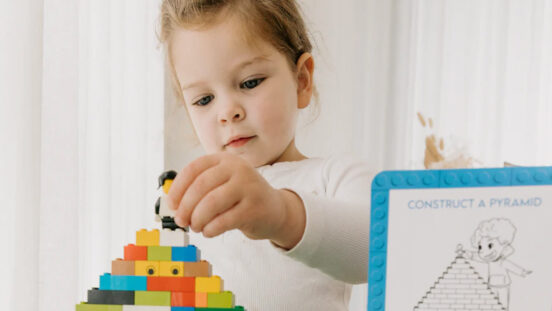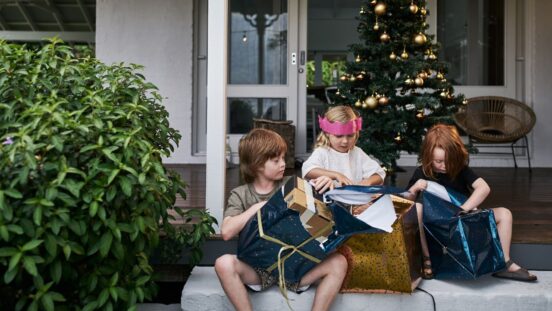What is ‘technoference’?: The hidden cost of screen time on kids

‘Technoference’ is more than a buzzword – it’s harming kids’ language skills. Explore the effects of screen interference on children’s development and learn how you can combat it easily.
By Dr Denise Meyerson, founder of Yay4Play™
As a passionate advocate for educational innovation, I’ve spent a large part of my career exploring how the act of play can bridge gaps in traditional education systems.
The term technoference has recently gained attention, highlighting an unsettling trend where screen time interferes with everyday interactions, significantly affecting the linguistic and cognitive development of our children.
Combatting ‘technoference’
A study in March 2024 by the Journal of the American Medical Association Paediatrics revealed startling statistics: excessive screen time can deprive a three-year-old of 1,100 adult words, 840 vocalisations, and 194 conversations daily.
With children naturally exposed to 5,000 to 35,000 words daily, the impact of this deficit is both profound and far-reaching.
This begs me to ask the question – is screen time considered play time? Here’s why the answer isn’t so simple…
This is not merely about limiting screen time but understanding its implications on our children’s ability to learn and grow. The average screen is stealing precious moments where fundamental skills are nurtured through conversation and interaction – skills essential for success in both academic and social spheres.

What is the six brick method and how does it help combat technoference?
I founded Yay4Play™ with the intention to integrate play-based learning into the Australian education system in a more effective way.
Our approach leverages The Six Brick Method, endorsed by the LEGO® Foundation, which has proven effective in enhancing numeracy and literacy among primary school students. This method isn’t just another educational tool – it’s a response to a critical need for interactive, engaging learning experiences that counterbalance the passive consumption of screen content.
The Six Brick Method is made up of over 300 activities which is designed to promote sensory play, numeracy, speech and language development, cognitive growth, and social and emotional skills.
These activities are rooted in the belief that learning through play is not only more engaging for children but also more effective in cementing new knowledge and skills. It’s a method that wakes up the brain, encourages imagination and, most importantly, fosters the kind of face-to-face interaction that screens so often replace.

The Six Brick Method has been met with enthusiasm across Australia, with many schools and early learning centres reporting remarkable improvements in students’ focus, engagement, and overall skill development.
By incorporating the Six Brick Method into daily learning, educators are witnessing firsthand how play can transform the educational experience, making learning more dynamic and interactive.
There is always a time and place for watching TV shows passively or swiping through shows on a handheld device. Everyone, no matter their age, needs some mindless downtime. But if that passive absorption of non-educational material extends beyond 30-45 minutes per day, parents have to take responsibility for the impact of technoference on vocabulary development, focus and attention and problem solving.

Technoference is a call to action for all of us – parents, educators, and policymakers – to re-evaluate the role of technology in our children’s lives. It’s a reminder that while digital devices are an integral part of our modern world, they should not replace the irreplaceable: the value of human interaction and the power of play in learning.
By embracing play-based learning, we can combat technoference and give our children the best start in life, ensuring they develop the skills necessary to navigate an increasingly complex world.
As parents and guardians, your role in this journey is critical. Encouraging play, fostering creativity, and ensuring your child benefits from rich, interactive experiences is essential in a world where screens often dominate. Together, we can turn the tide on technoference, ensuring our children grow into well-rounded, knowledgeable, and emotionally intelligent individuals.
The battle against technoference is not one we can afford to ignore. By prioritising play-based learning and embracing methods like the Six Brick Method, we can ensure our children have the tools they need to thrive in an ever-changing world. Let’s commit to making play an integral part of our children’s lives, for their future and the future of our society depends on it.
Dr Denise Meyerson is founder of Yay4Play™ the number 1 education toy to accelerate your child’s learning and development.




